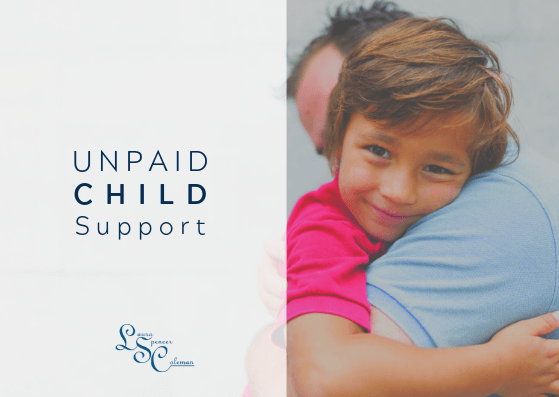Is Your Ex-Spouse Failing to Pay Child Support?
- By Laura Spencer Coleman
- •
- 04 Apr, 2018
- •

Divorce is messy, emotional and time-consuming. If you have children, it can also create a volatile ongoing battle. When your ex-spouse fails to pay their fair share of child support, your children are the ones who suffer. This is why you need legal counsel and advice if your ex-spouse is failing to meet his or her court-appointed payments.
Here is our most important advice regarding missed child support payments.
Know The Penalties
It’s important to understand that failure to pay child support for extended periods of time is a federal offense in the United States of America.
The Child Support Recovery Act (1992) aimed to prevent non-payment of State-ordered child support by mandating prosecution for serious offenders. Unfortunately, for offenders facing only misdemeanor charges, punishment is not usually effective--non-payment of child support generally continues following misdemeanor charges.
That being said, there are several legal penalties associated with failing to pay court-ordered child support:
- Warrant For Arrest
- Fines
- Jail Time
- Garnishment of Wages
- Exclusion from Receiving Certain Government Benefits
- Suspension of Drivers’ License
In addition to jail time or garnishment of wages, offenders can be denied a Passport or have liens placed against their property.
Make sure your ex-spouse knows that non-payment of court-ordered support can result in jail time and interception of funds.
Try to Keep The Other Parent Involved
It can be tempting to cut off an ex-spouse’s parental visitation if he or she fails to make child support payments on time.
Unfortunately, preventing your ex-spouse from seeing your child can cause distance and actually decrease the chance that he or she will pay.
Encourage your ex to continue his or her normally scheduled visits with your children. By being actively involved in your children’s lives, he or she may feel more urgency in making their child support payments.
File A Motion
If non-payment of child support persists for six months or longer and you’ve gotten little or no help from the state, your lawyer can help you file a Motion for Civil Contempt/Enforcement.
Before you file, make sure you have proof of the court order for child support payments in your divorce case.
You should also get a detailed record of each child support payment your ex-spouse has made. Bank records that show no transfers or deposits can also strengthen your case for lack of payment.
Most importantly, you should have detailed documentation for the amount of child support that is past due. Your family law attorney can help you gather the documents and file the motion on your behalf, saving you time and frustration.
In these cases, the court also has the power to force your ex-spouse to reimburse you for attorney’s fees or other expenses related to the contempt of court case.
Have more questions about child custody, divorce, time sharing or juvenile law matters?
Laura Spencer Coleman is a Florida family law attorney with over 20 years of experience helping families and individuals navigate complex legal issues.
Contact our office today.













